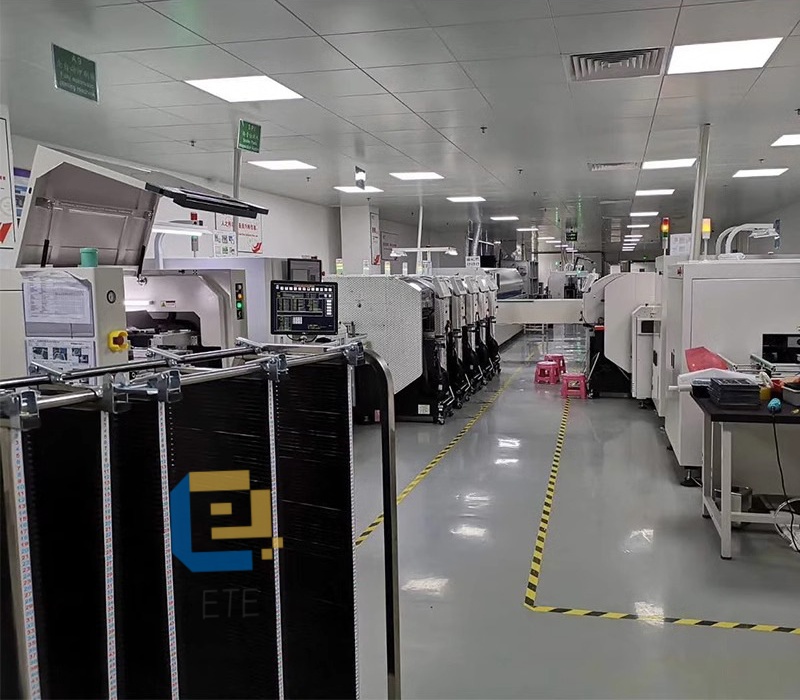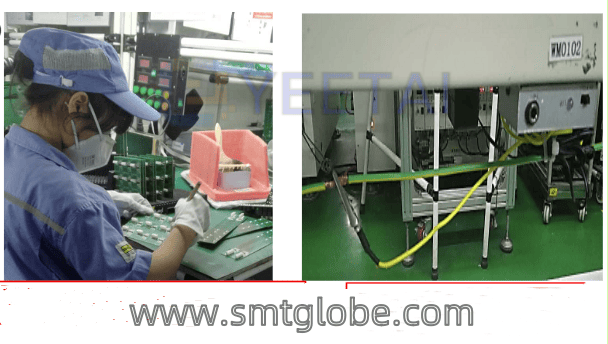With the advent of Industry 4.0, which integrates “industrial control, the Internet, and intelligence,” the landscape for Programmable Logic Controllers (PLCs) is evolving rapidly. The market space for PLCs, particularly in the context of SMD feeder applications, is set to expand significantly. In this article, we will explore the future development opportunities for domestic PLCs in China.
The Transition from Automation to Intelligent Production
The completion of Industry 3.0 brought about significant automation in manufacturing processes, leading to widespread use of automated control systems and instrumentation. In contrast, Industry 4.0 emphasizes intelligent production, shifting the focus from automated devices to smart software solutions. By embedding industry knowledge and experience into intelligent software, we are creating a “smart industrial brain.”
As the era of Industry 4.0 unfolds, intelligent manufacturing demands higher breadth and depth from automated production processes. This growth in smart production directly boosts the planning and penetration rates of the PLC industry, presenting vast opportunities for domestic PLCs.
The Versatility of PLCs in Industrial Control
PLCs come in various sizes and capabilities, enabling them to control individual devices or entire production lines. Whether in a small workshop or a large factory, PLCs are essential for industrial control. Their versatility makes them integral components in a wide range of applications, including SMD feeder technology.
Strong Bargaining Power in the PLC Industry
Domestic PLC enterprises possess strong bargaining power within the industrial chain. The combination of “technology, customer relationships, funds, and product exclusivity” forms high entry barriers for medium to large PLC companies.
While the upstream components of PLCs tend to have limited differentiation and high substitutability, PLC companies can build their core competitive strength by developing application programs, integrating PLCs, and providing tailored solutions for downstream clients. As a result, PLC manufacturers enjoy significant bargaining power.
Although PLCs can be used across different industries, challenges remain. Small PLCs are primarily applied in OEM markets, which face significant competition due to low technical barriers. Conversely, large PLCs target project-based markets, where they must meet high technical requirements, such as platform stability and network configuration capabilities. Additionally, collaborating with downstream manufacturers often involves handling data security issues, further establishing “technology barriers, customer barriers, funding barriers, and product exclusivity barriers” that create a wide moat for medium and large PLC vendors.
Opportunities for Domestic Medium to Large PLCs
Currently, the penetration rate for domestic medium to large PLCs remains low. However, leading domestic industrial software companies like Baoxin Software have laid a solid foundation to transition from small to medium and large PLC markets.
The domestic PLC market in China is characterized by two primary features:
- Foreign Market Dominance: The domestic PLC market is predominantly led by foreign companies. In 2020, six foreign brands—Siemens, Mitsubishi Electric, Omron, Rockwell, Delta, and Schneider—held an impressive 83% market share, while local PLC manufacturers accounted for less than 20% of the market.
- Focus on Small-Scale Products: Most domestic PLC manufacturers specialize in small PLCs, relying on foreign brands for medium and large PLCs. However, domestic manufacturers are positioned to leverage local expertise and rapidly achieve technical breakthroughs, thereby capturing market share.
Moreover, domestic companies possess advantages such as deeper understanding of local customers, better cost-effectiveness, and faster response times. Companies like Baoxin Software, Inovance Technology, and Xinjie Electric are actively investing in research and development, indicating a promising potential for domestic substitution in the PLC market.
Conclusion
The shift towards intelligent production and the continued expansion of the PLC market present significant opportunities for domestic PLC manufacturers in China. By leveraging local insights and technology advancements, the potential for growth in the medium to large PLC segment is substantial. As these companies continue to innovate and invest in capabilities, the future of domestic PLCs looks promising.
At YEETAI, we produce all kinds of feeder to upgrade SMT machines.



